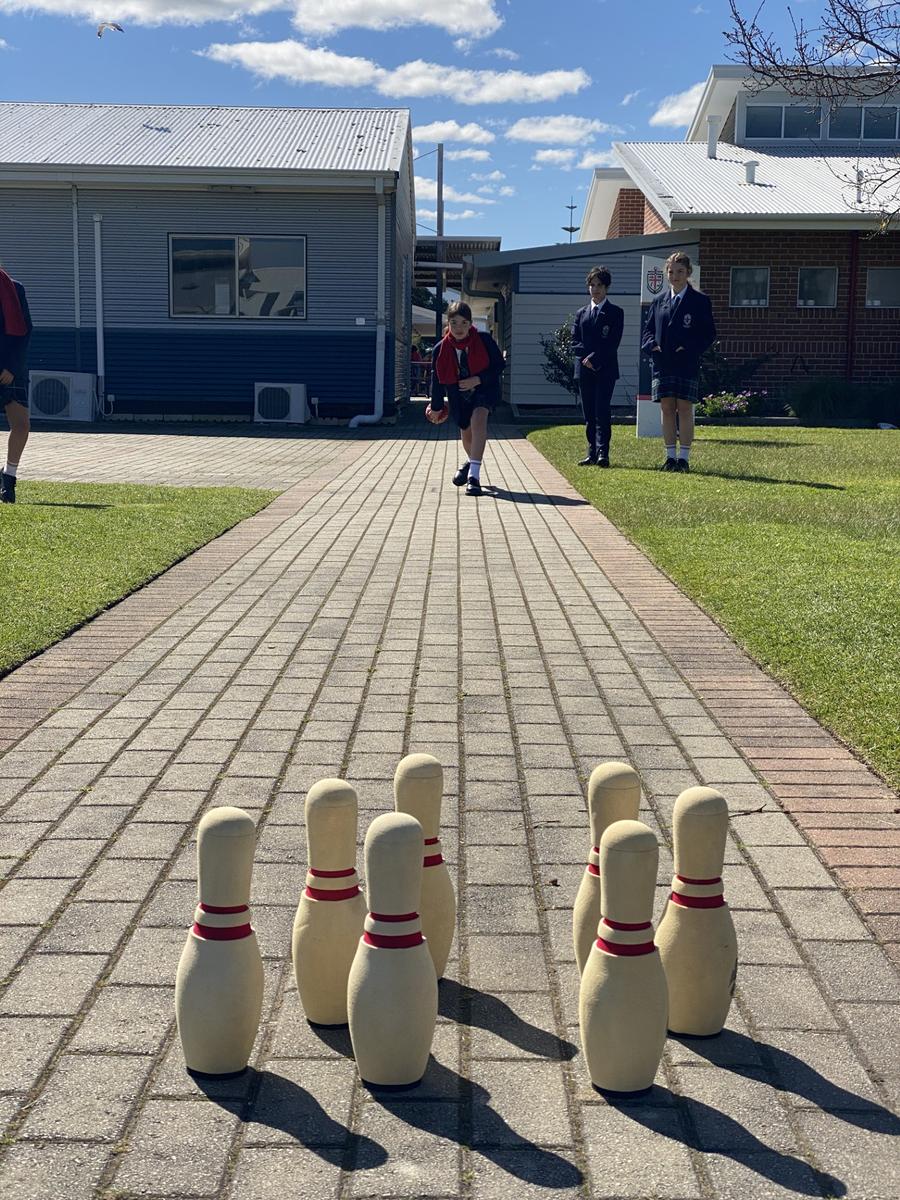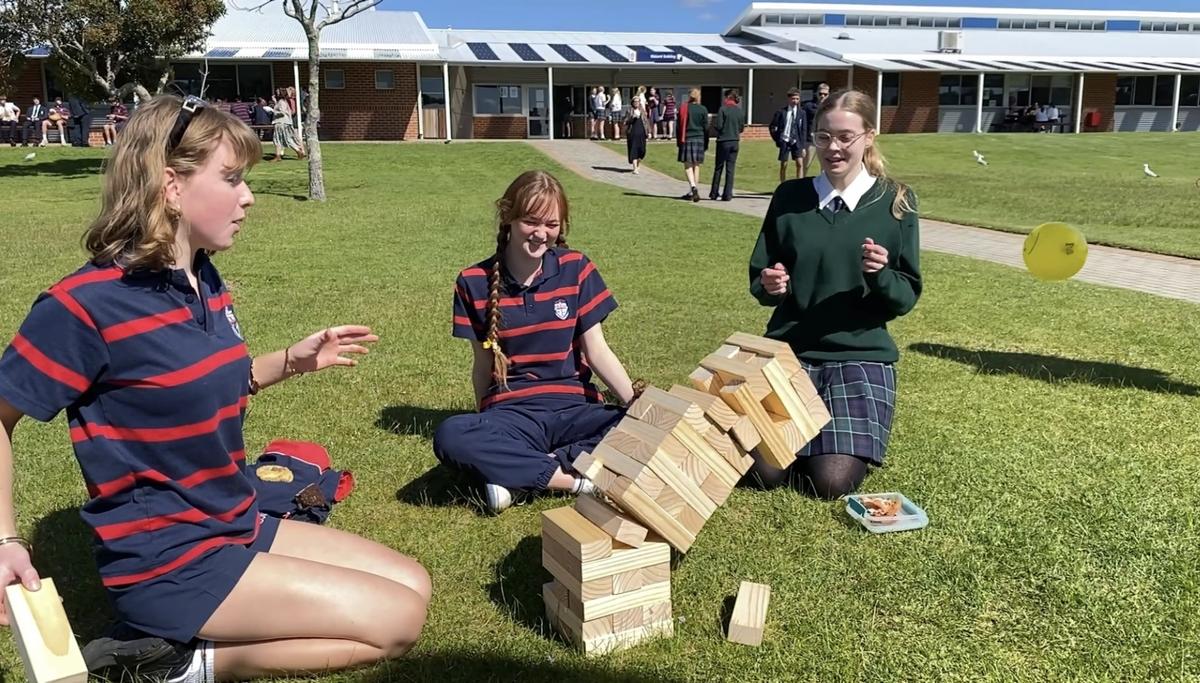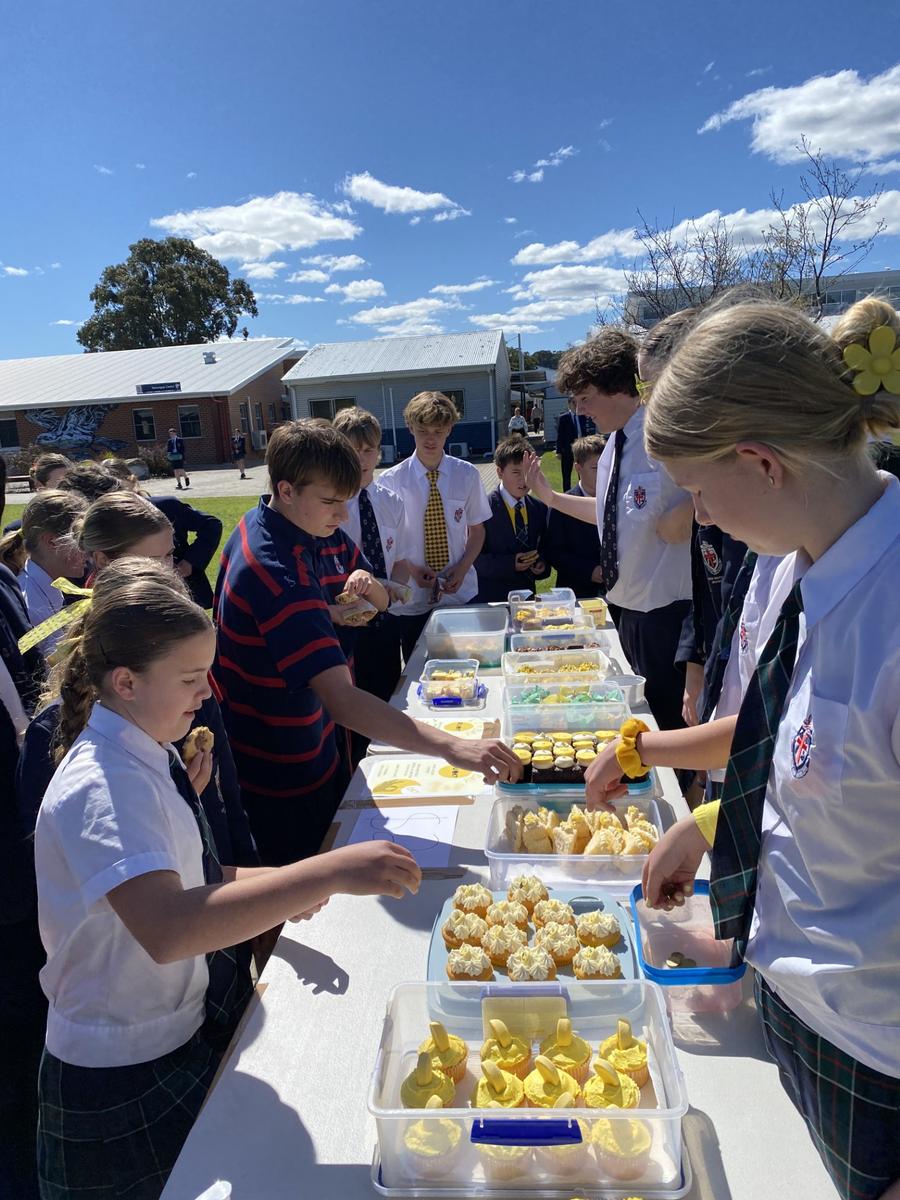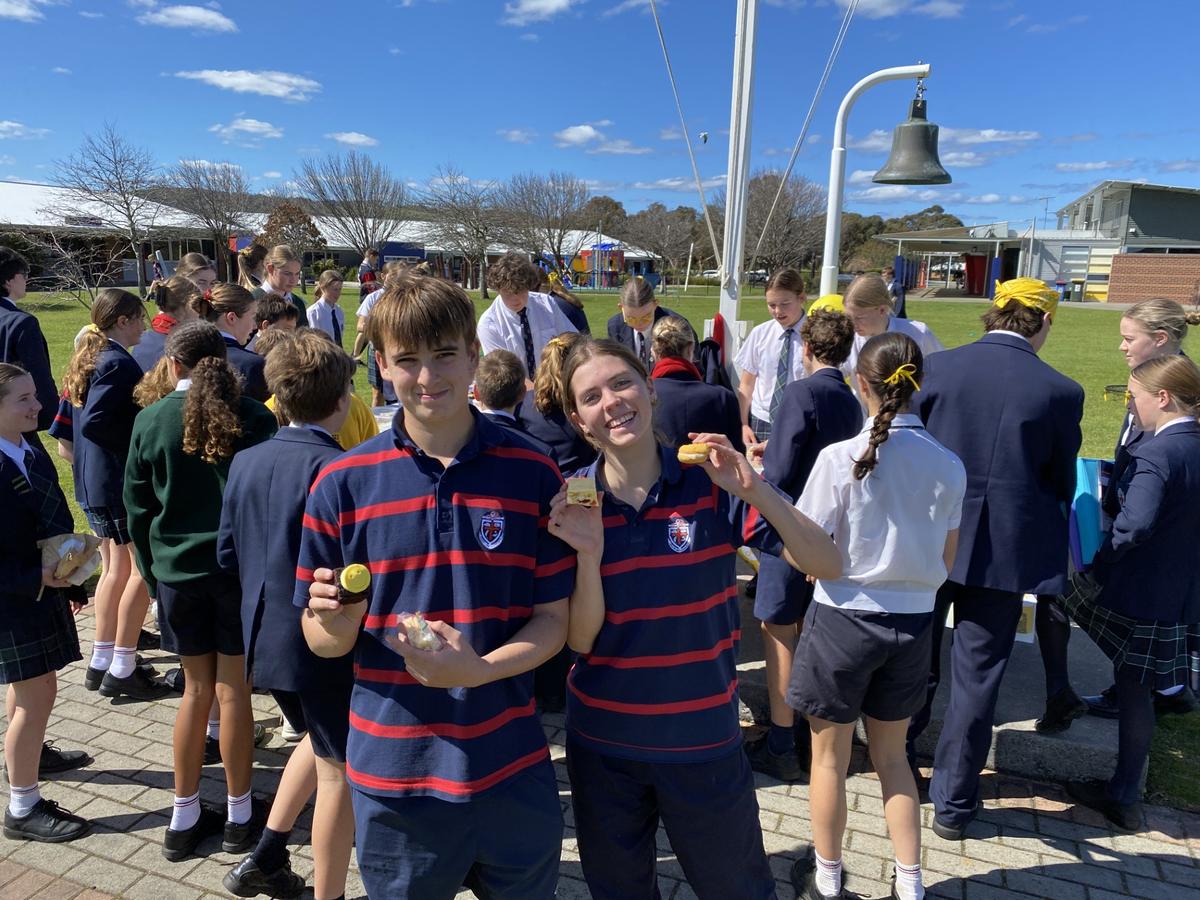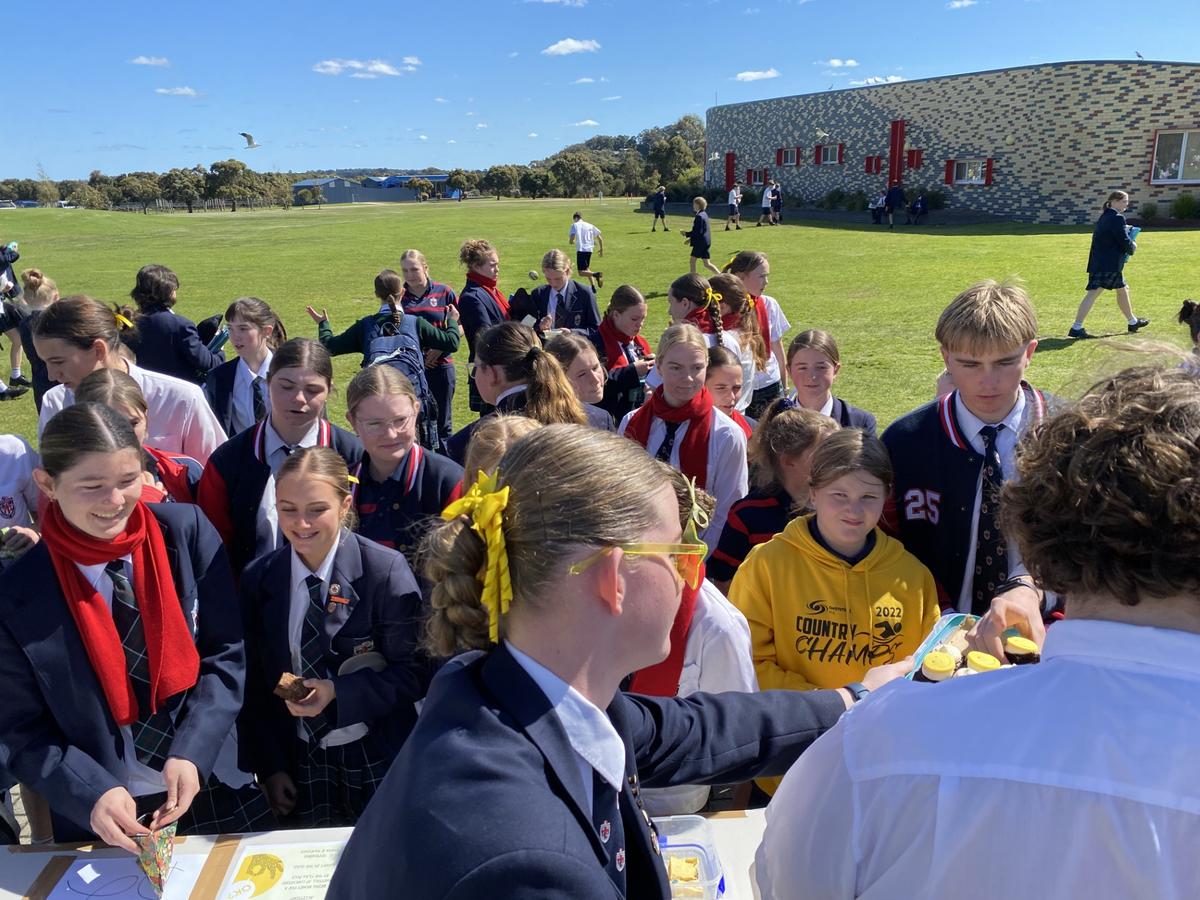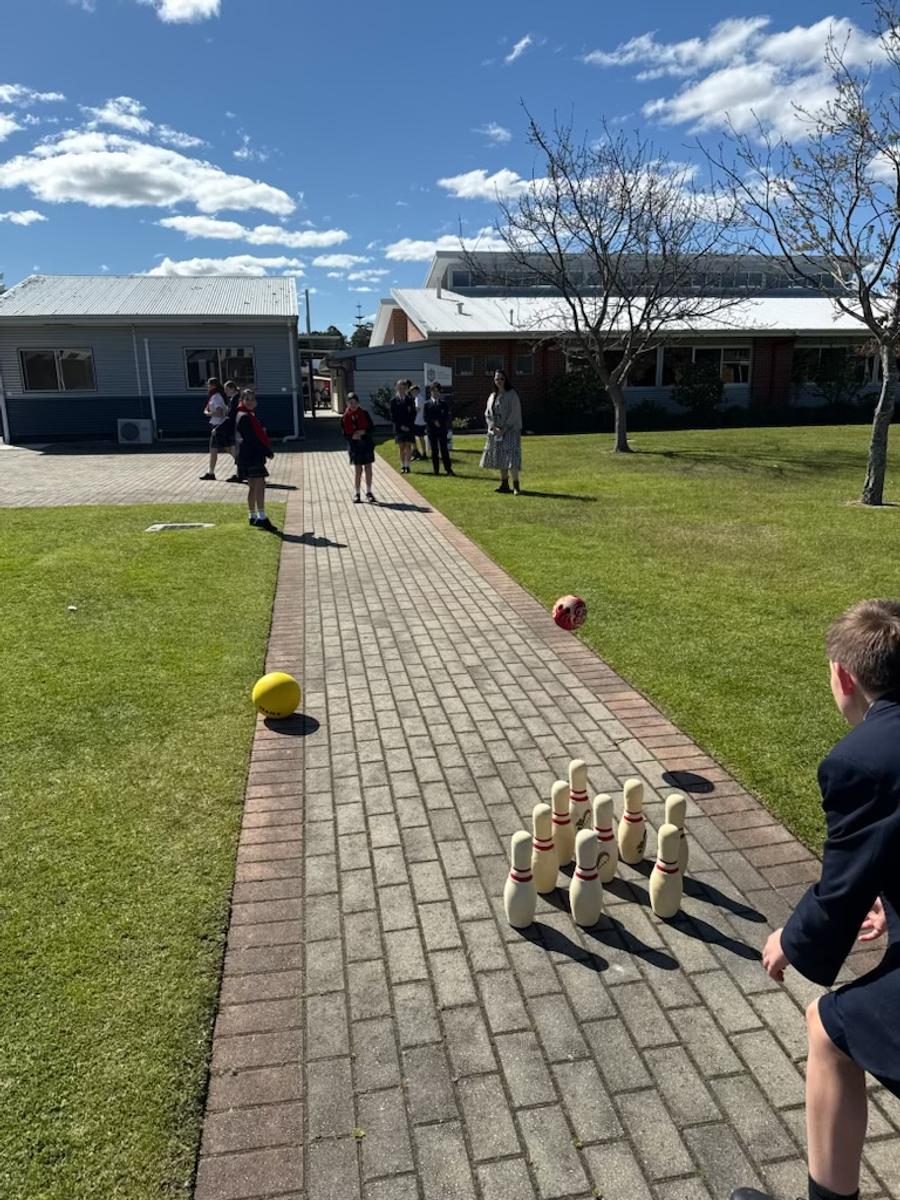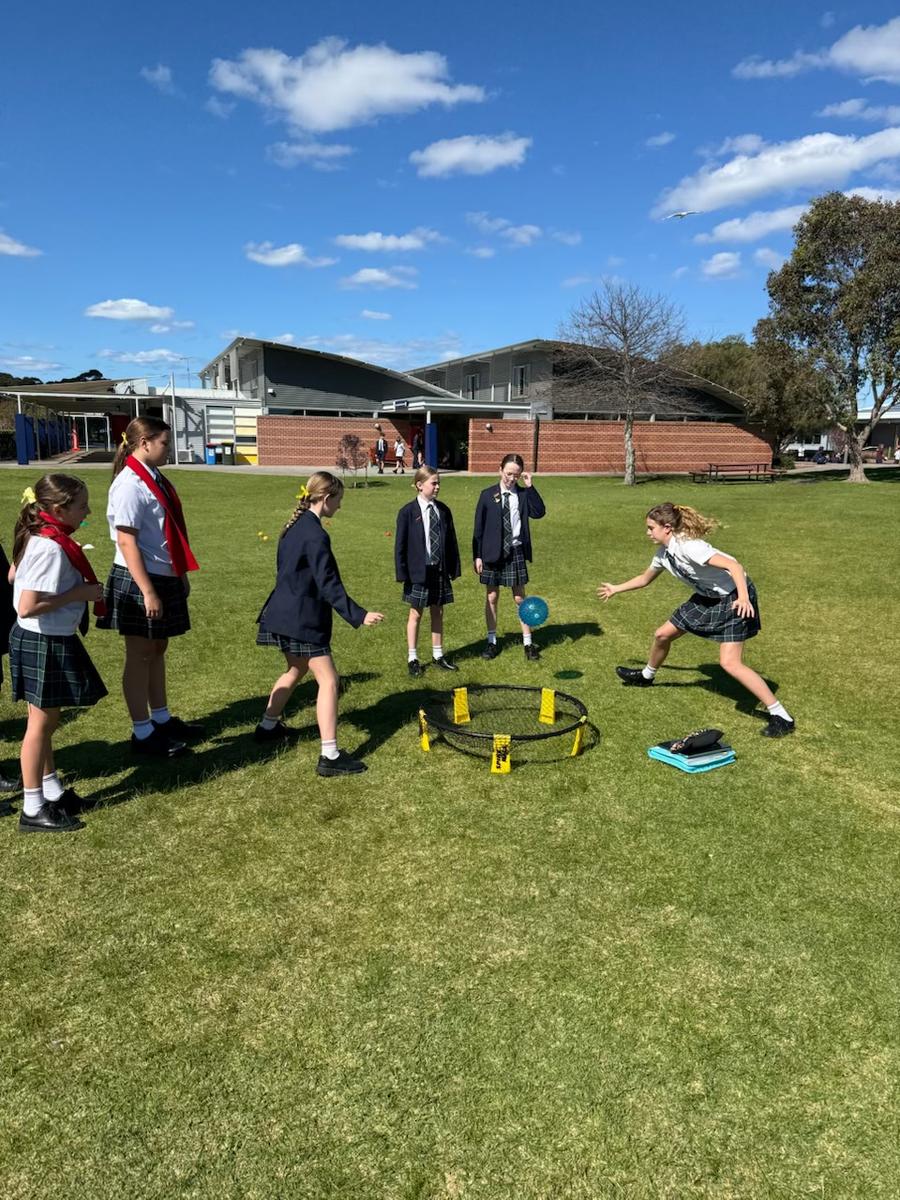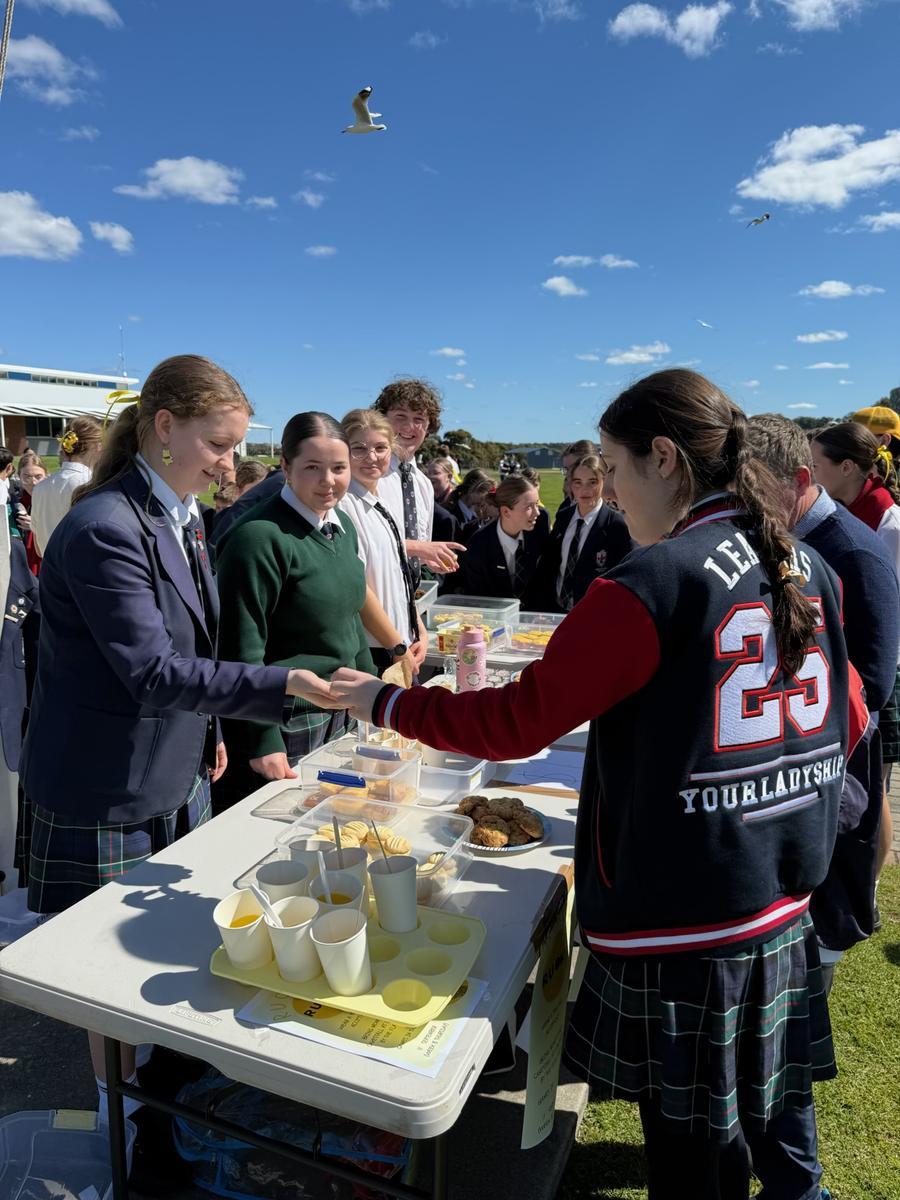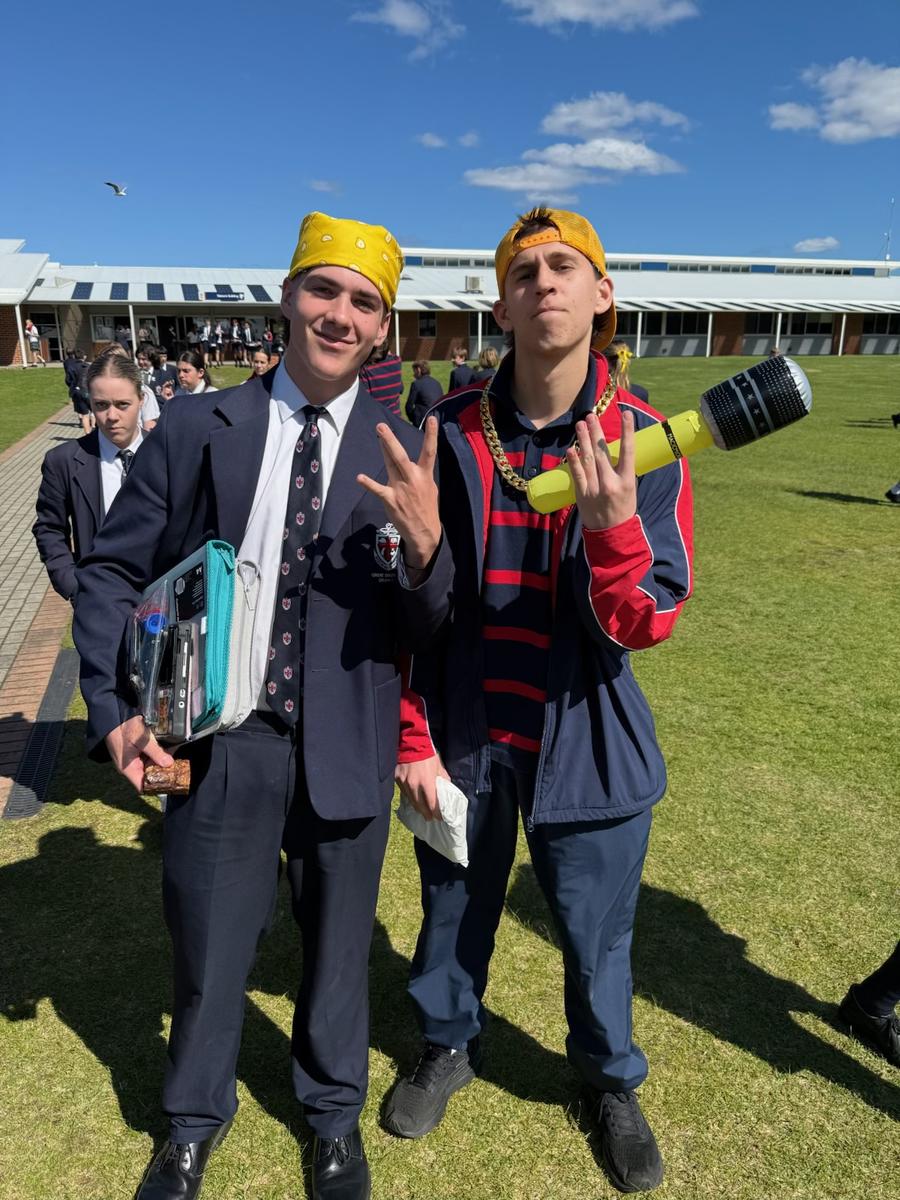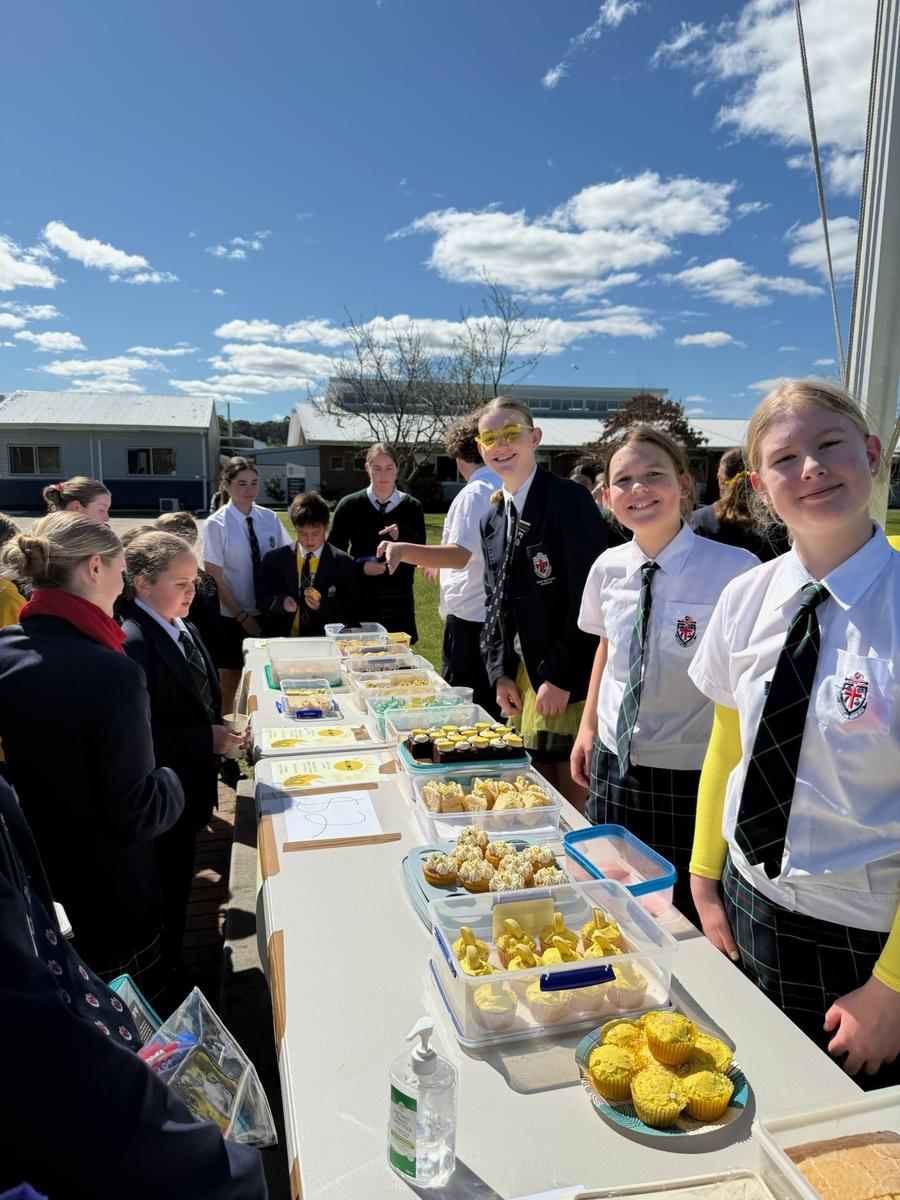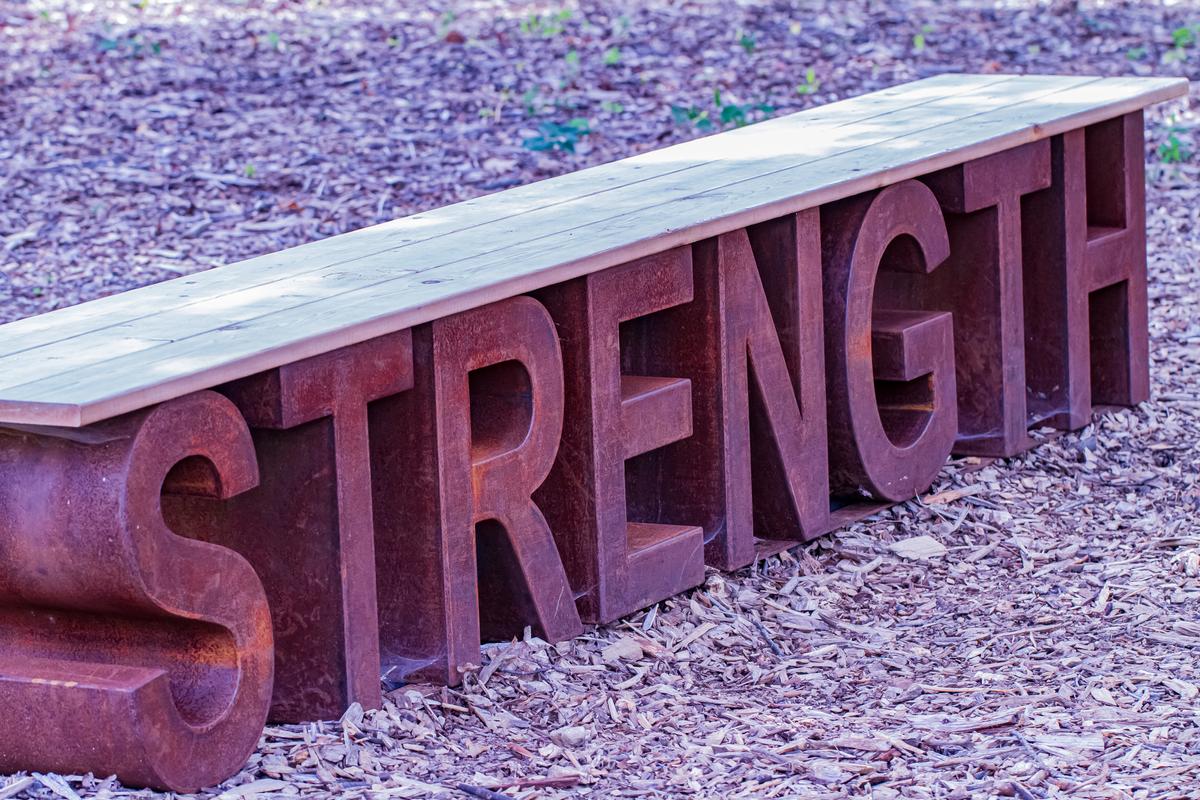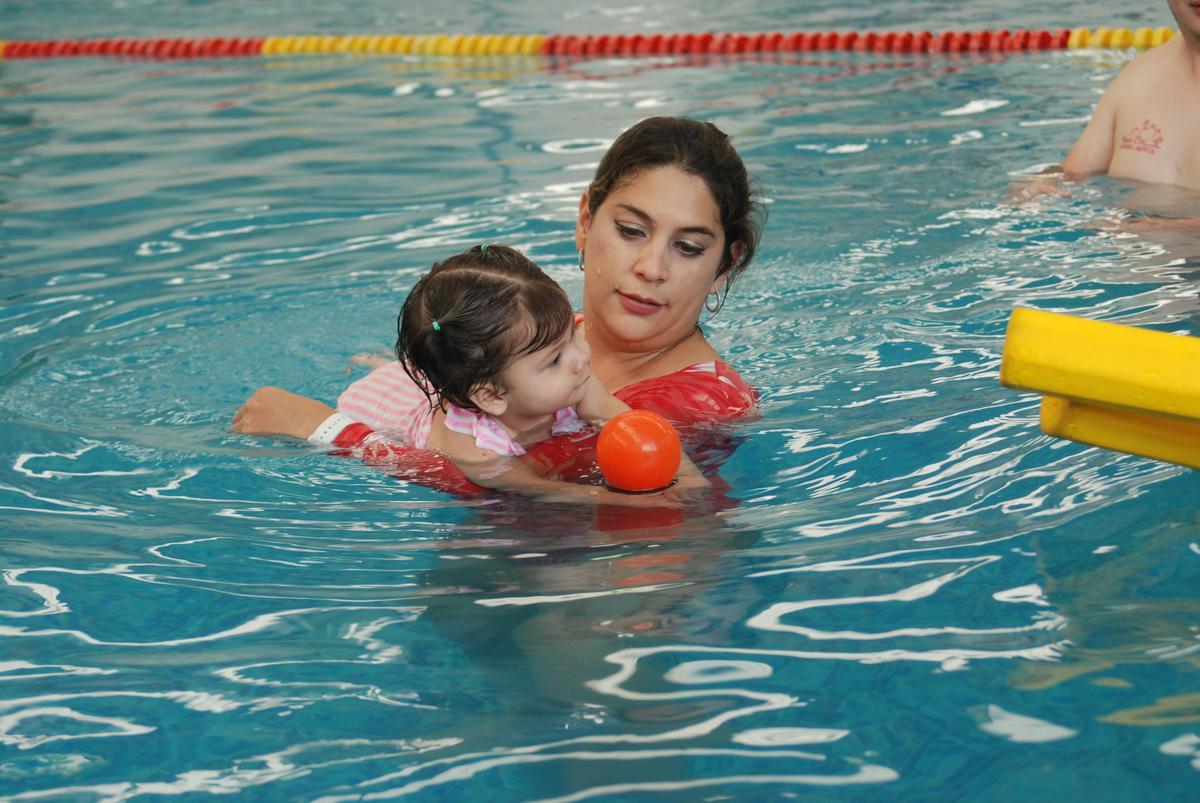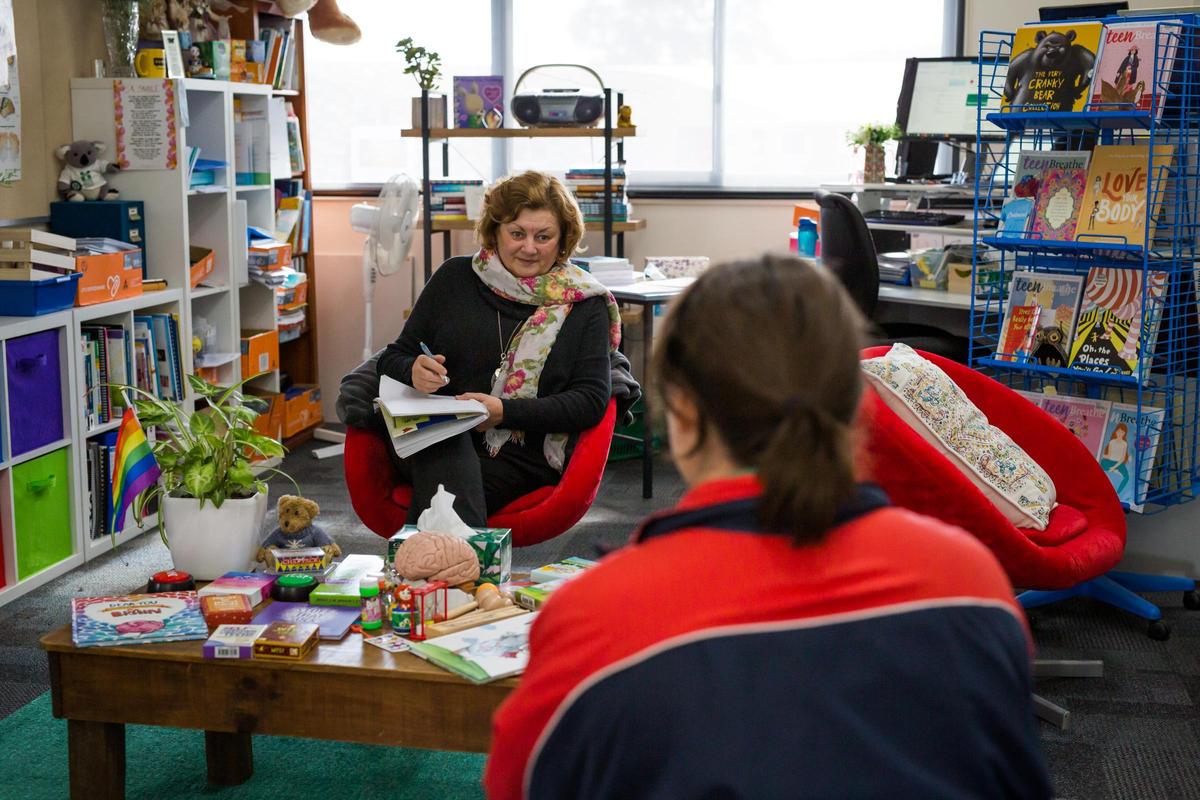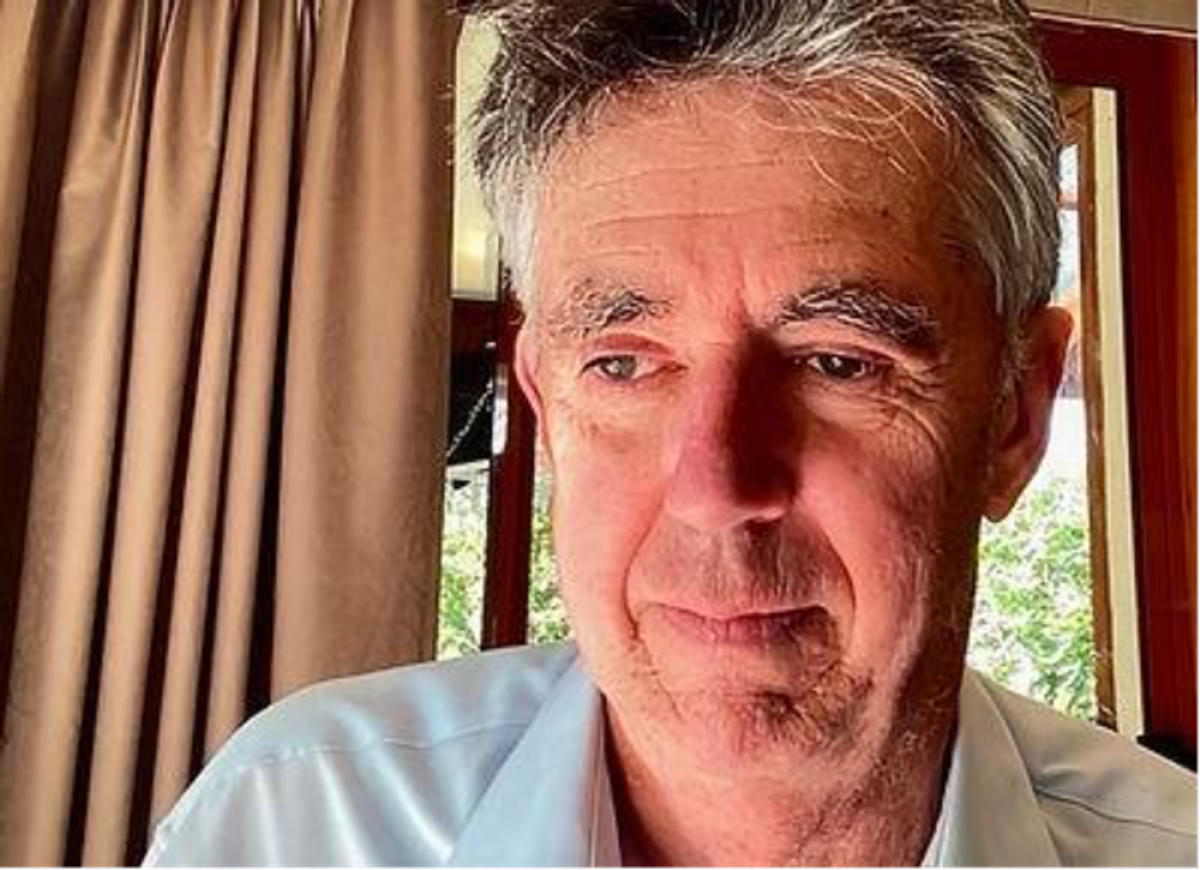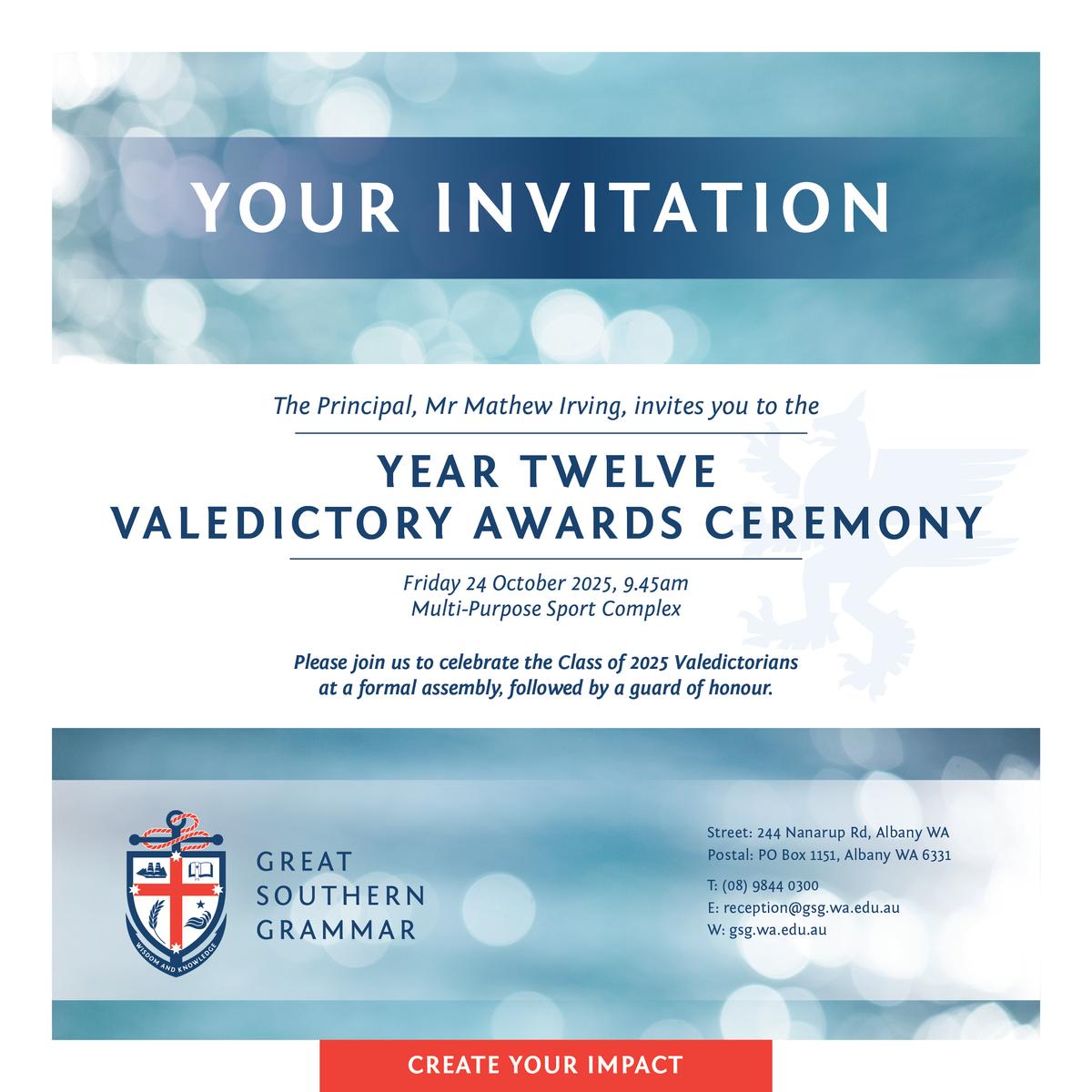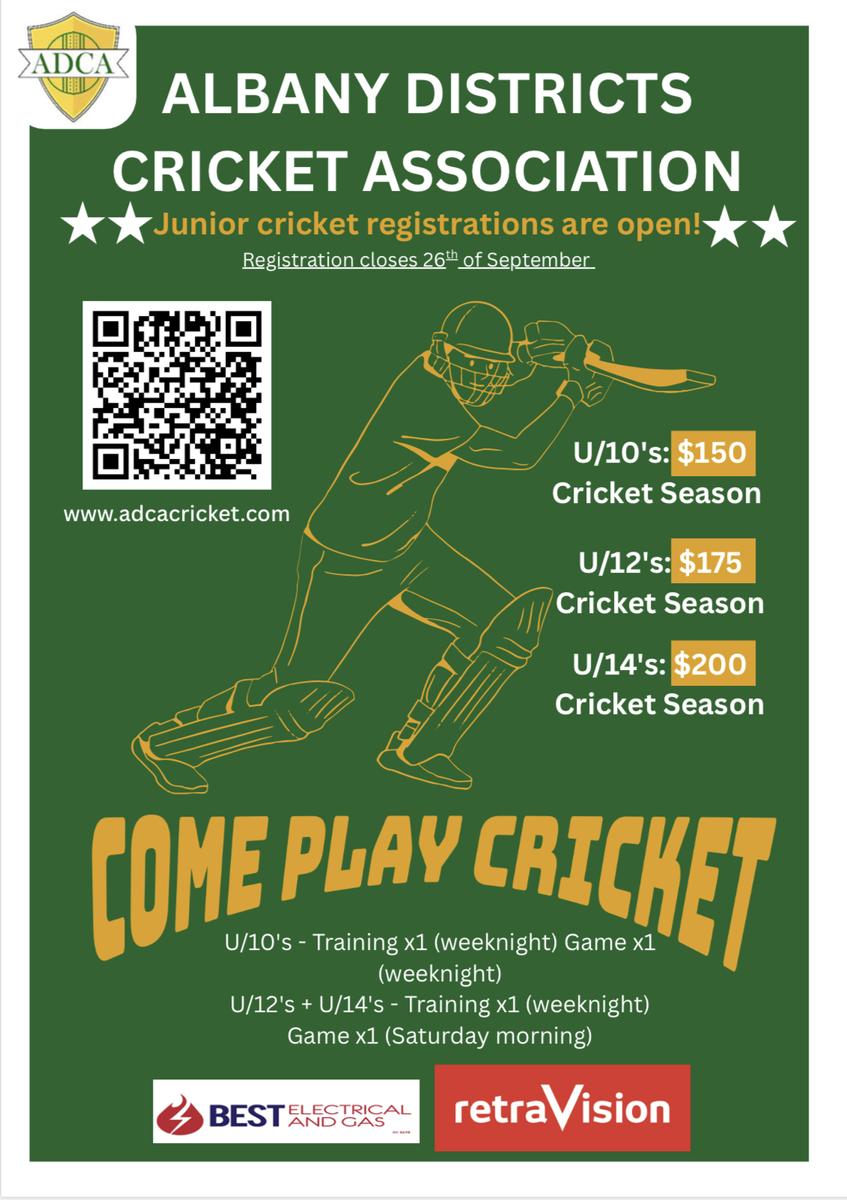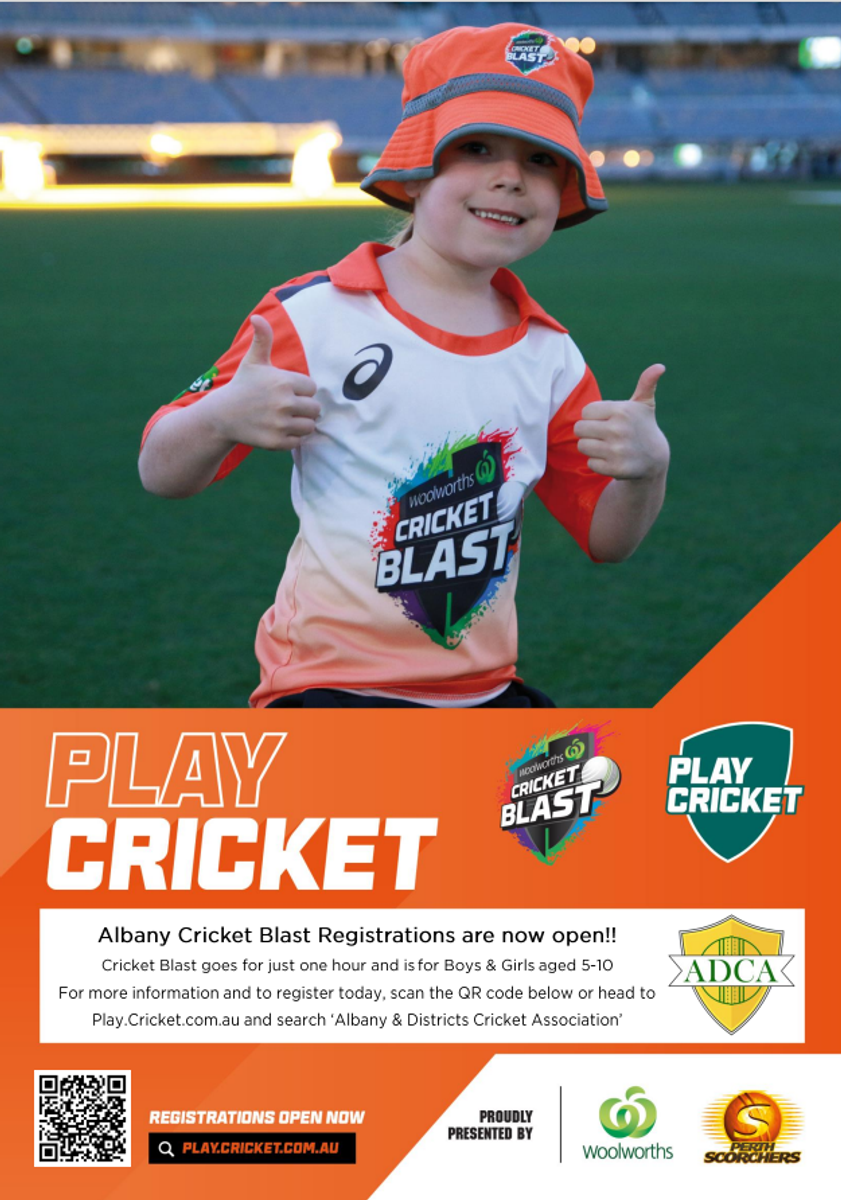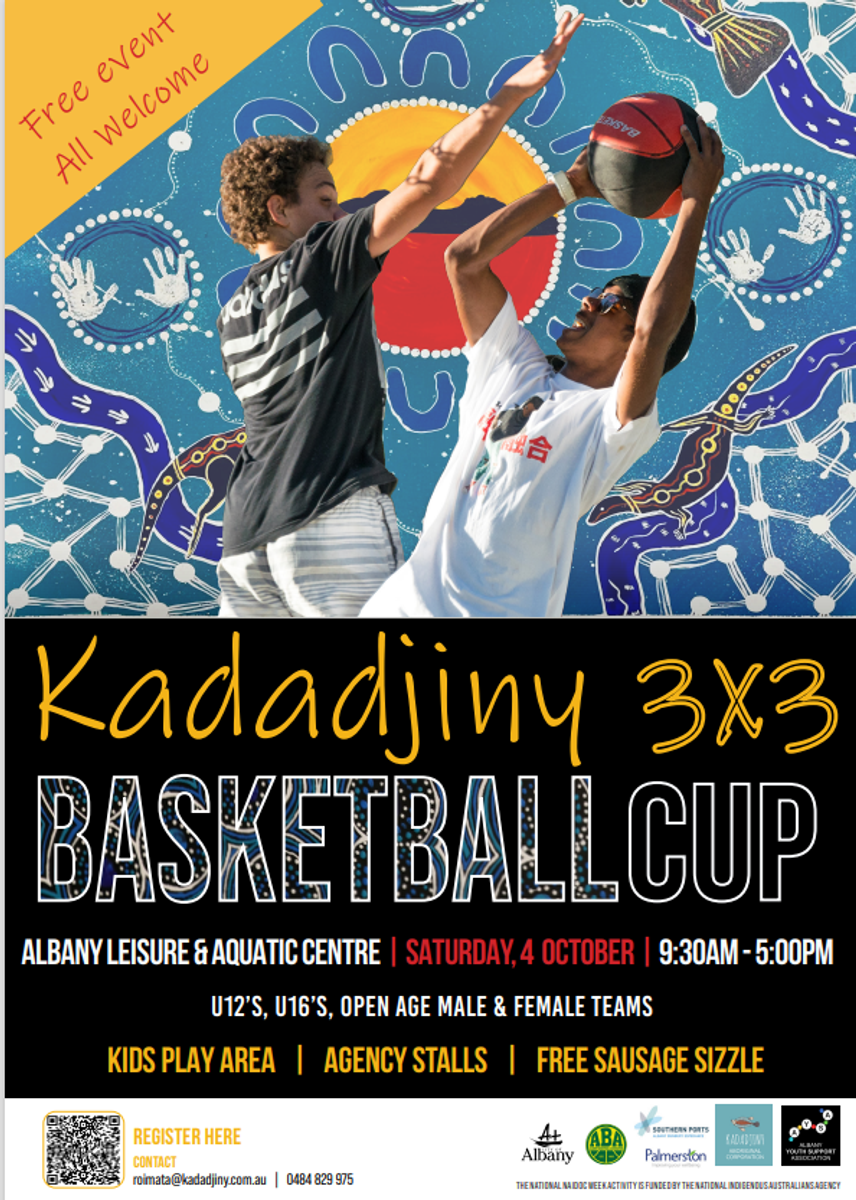Whole School News
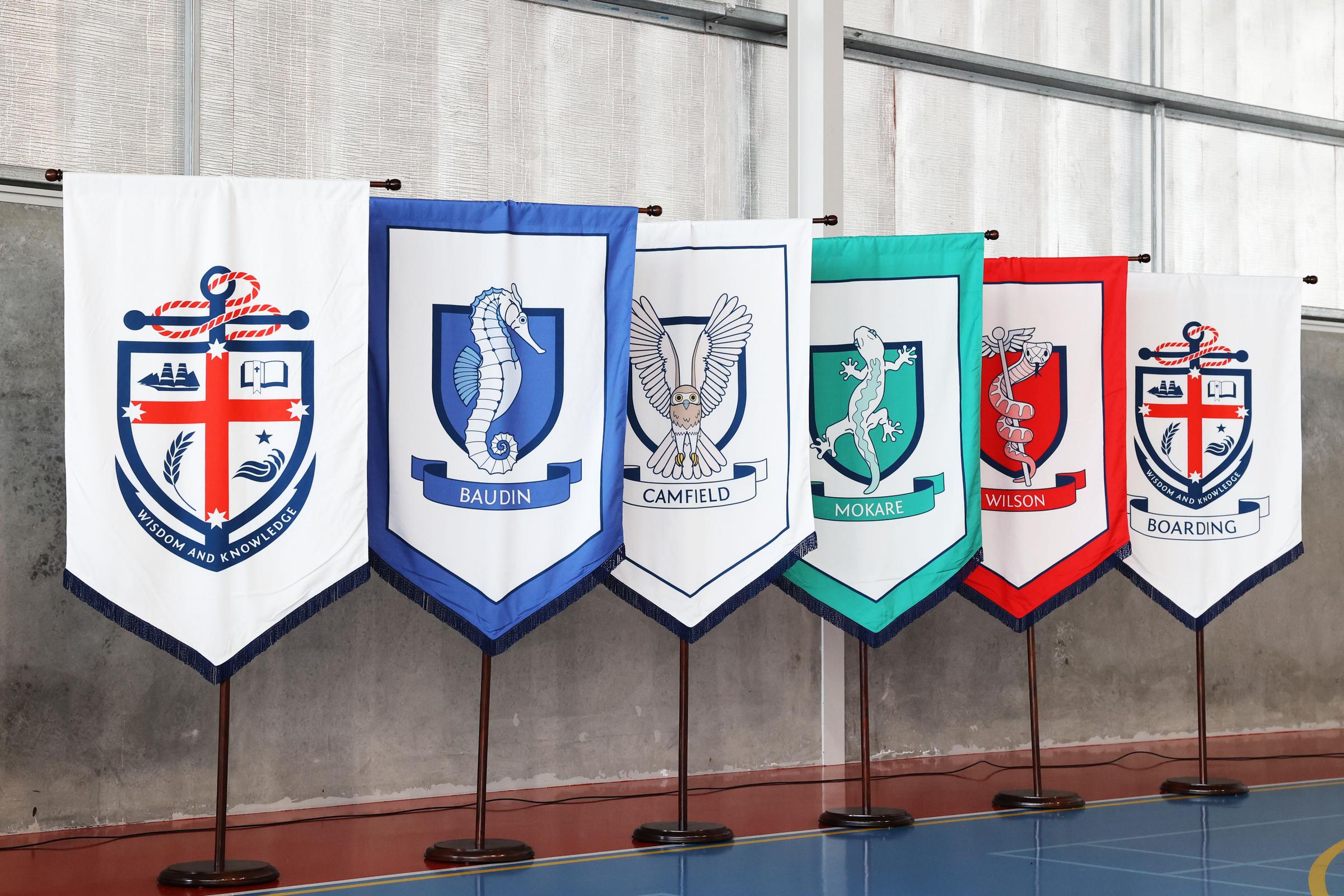
RUOK Day
Last Thursday, RUOK Day was awash with yellow accessories, making it an amazing day. Various games, including bowling, giant Jenga, golf putting, lawn bowls and spike ball, were set up for all to enjoy and bring some extra fun and conversations to lunchtime. The cake stall raised over $400 for headspace Albany and Youth Focus and was extremely well supported. The day was a great success and brought awareness of mental health issues and the importance of checking in and asking friends and family how they are going in a meaningful way. Thank you to everyone for their support.
Student Council RUOK Committee
Strength and Conditioning Programme
Have you just finished a season of winter sport or perhaps you would like to cross-train for your summer sport commitments?
GSG is excited to offer an opportunity to attend a Strength and Conditioning programme during Term Four.
This programme is designed to improve general muscle strength, muscle endurance, core stability and agility. The aim is for students to improve their own capabilities and it is not a competitive environment.
The programme is aimed at whole athlete physical development rather than being sport specific. We hope to educate students on how to exercise in a fun way using minimal equipment so that this is sustainable at home.
Who: Students from Years Four to Twelve
When: Term Four on Tuesdays
Times: 3.30pm to 4.00pm
Commencing: Tuesday 14 October (Week One)
Ending: Tuesday 2 December (Week Eight)
Where: GSG outdoor courts near the Multi-Purpose Sport Complex (This may change depending on the weather.)
Staff: Mrs Caroline Cameron, Ms Mel Pears and Ms Meg Ritchie
Register: To register to attend, please complete here by Wednesday 24 September.
Any enquiries can be forwarded to caroline.cameron@gsg.wa.edu.au.
FREE 4-Day Swim Teacher Course
Albany Leisure and Aquatic Centre will be hosting another FREE 4-Day Swim Teacher Course at the end of Term Four. This is a fantastic opportunity for students to gain a nationally recognised qualification in a vital industry.
Qualified swim teachers are in high demand across WA, and this course can open the door to rewarding part-time or casual work while studying, or to a long-term career in the aquatics sector.
A brochure is attached for easy reference, and enrolments can be made directly via the link below:
From the School Counsellor
Dear GSG Community
As mentioned last week, we are well into the season of Djilba, a season of change and promise. There are three brilliant, thoughtful and apropos publications to share this week:
- Five messages all adolescents need to hear by David Ward;
- Children Learn What They Live by Dorothy Law Nolte and; a nod to
- Steve Biddulph’s latest book Wild Creature Mind.
Two of these treasures are enduring, perennial pieces: indeed, you may be familiar with them due to their legacy.
Carve out a little “me” time and savour the read… get a coffee… put your feet up… stroke the dog…
Five Messages Every Teenager Needs to Hear
In every family around the country, every single day, parents and carers will give many messages to teenagers about many different things.
Some of these messages are really helpful, while some are not.
In fact, some messages can be quite destructive; others are very necessary indeed for healthy teenage development. In this short article, I want to share some thoughts about five healthy messages that I originally wrote about many years ago (Ward 2009). These five messages are:
- You can go
- We believe in you
- We will miss you
- We will cope without you
Let’s stay in touch.
Let’s look at these one by one.
1. You can go
By this, I mean the parents give the OK for the teen to leave the family nest without any strings attached. This could mean departing on their first job while remaining at home, or leaving the home completely when the time is right. The message "you can go " means the teen has a ‘pass’ to leave the family nest, while being able to return should they need to.
Some parents find it hard to let their children go. Sometimes it is because one parent gets their companionship through their child. Other times it is difficult to let them go physically or emotionally because they get some other need met via their child. In family therapy terms, it might be what we call ‘enmeshment’ and can be unhelpful for the teenager’s development.
2. We believe in you
This message declares that the teen not only has the blessing to go, but that the parents believe that their teen will do just fine in the outside world. The family is not threatened by the teen leaving home and is cheerleading from the sidelines.
This is a message of encouragement; one that lets the young person know that, as far as the parents are concerned, they are more than ready to face the outside world with all its various challenges and trials.
3. We will miss you
This message lets the teen know that the emotional attachment to them will remain despite their physical absence. Regardless of geography, they will always be a part of the family and there will be a note of sadness as they see their teenager move more and more into the outside world.
4. We will cope without you
This message is the important twin to the previous one. If “we will miss you” is given too strongly, it can turn into subtle manipulation. This message then balances the previous one by giving the message that “we are grown-ups; we’ll be okay and you don’t need to worry about us”.
5. Let’s stay in touch
This message offers the young person an invitation to remain connected to the family system and declares that an open door will always be offered should they wish to return, as well as to remain in contact. This message is a gentle offer, not a stern demand. The parents trust their child enough to not only leave the family nest, but to give them a choice about re-contacting after they have left.
Finally, there are four other important points to remember with the above five messages.
- Each of the messages needs each other. For example, “we will miss you” must also be balanced with “we will cope without you”. Otherwise, the teenager will not hear “we will cope”, but instead hear, “we need you here at home, please don’t go”.
- Each of the messages must be relayed to the young person in a genuine, non-manipulative way. For example, it would be wrong to say “yes, you can go” in one breath, while in the same sentence explain that if they do, the family business will collapse, or Dad’s health will suffer.
- Each of the messages represents a fresh negotiation of the parent-teenager relationship. The teenager and young adult are no longer children and therefore need to experience a fresh and 'up-to-date' relationship with their carers. In other words, if you treat your 17-year-old the same as a 14-year-old, you are asking for trouble. Likewise, a 22-year-old is treated differently from an 18-year-old.
Lastly, the emotional health of the family itself is absolutely crucial in order to deliver these messages appropriately. A family that is ‘good enough’ (no family is perfect!) will encourage the adolescent or young adult to develop as an individual, where they are separate from the family, yet still connected. This means that the family structure needs to have healthy boundaries, such as the parents getting their emotional needs met via each other and other adults and not using their child.
The above messages can also be modified to suit the various cultural differences between families. For example, “let’s stay in touch” means many different things for many families, and every family is different with diverse rules and culture. The key thing to remember is that, like the potted plant that has outgrown its pot and needs to be re-potted, families change over time and need to make adjustments.
Some of these adjustments can be stressful, and occasionally, someone from outside the family needs to suggest how to do them. If that is your experience, please contact me and I would be happy to be a part of your family’s journey.
Author:Dr David Ward, BSocWk, BA., Grad Dip (Couple Thpy), M.Couns., MPhil., PhD.
WILD CREATURE MIND Steve Biddulph
See below the grab from the website for this incredible book – enjoy the biographical notes on Steve as well as the information about this wonderful production.
I have read it and keep going back to it – Wild Creature Mind offers hope, succour, playfulness, connectedness, acceptance, health and increased our capacityto love, to care and to cooperate …
“Steve Biddulph was a psychologist from the mid-1970’s until the early 2000’s. He is retired now but continues to write and sometimes teach. Steve’s books have sold over a million copies in each of these countries - Australia, the UK, Brazil and Germany, and over two million copies in China. And lots more in 28 other languages. He has become the top-selling parenting author in the world this century. (His nearest competitors are The Whole Brain Child and Phillipa Perry’s excellent book, both on 3 million each and also excellent books!) Steve has an Order of Australia for his work in teenage mental health and was voted Australian Father of the Year for his role in encouraging the role of fathers in the modern family. He studied as a Churchill Fellow in the western United States, focusing on group and family therapy, and his dissertation explored preventive mental health programs in small groups within primary schools. He is married to Shaaron Biddulph and because he is neurodivergent, has been helped by her enormously over the forty years they have been together, to be better able to contribute to the lives of others.”
Wild Creature Mind combines the ideas of British neuroscientist Iain McGilchrist, with the cutting edge of somatic psychotherapy - Eugene Gendlin and the "felt sense" methods of dialoguing with our silent right hemisphere. In language that is both simple and fun enough for any reader. These ideas are bringing huge excitement to my colleagues around the world, but needed to be "got out there" for wider discussion and practical use.
To help heal trauma, convert anxiety into action, strengthen boundaries and improve mental health in children, teens and adults. Tapping into your animal brain and body systems to improve thinking and feeling and become infinitely more alive.
I have used exercises you can easily follow, introduced the ideas and the people behind them. Unforgettable stories bring the book to life and touch your heart so that you, too, can begin to use the methods right away.
I am getting old (70 this year) and in my "decade of farewell" I want to get this fantastic message about the newest neuroscience into the hands of everyone. So you can bring more love into your family and our world. Because the need is great.”
We have two minds. It’s the most radical new insight to have come out of neuroscience or psychology in a hundred years. We have our normal mind, overthinking, rattling about, getting defensive. And our Wild Creature Mind - full of life, intelligence, sensitivity and connection. Where our capacity to love, care and cooperate can heal and guide us. But our Wild Creature Mind is silent, it speaks only through sensations down the midline of our body, as "felt sense", subtle, fresh and specific. You are feeling them right now, as you read this and every second of your life. They are the way that animals organise and direct their actions and their acute sensitivity and power. We just forgot they were there.
Our brain is divided, but our body is not and we can dialogue with these sensations to track back into our Right Hemisphere and know what it is trying to say. It is a powerful and surprising way to…
Solve anxiety. Strengthen boundaries. Lift depression. Rediscover love, tenderness and ferocity in your everyday life. Help your children and teens and yourself. Build a better world. Grrrrowlll!!
Meet Dorothy Law Nolte
She is a woman who understood the field of positive youth development before it was invented.
Born in 1924, Dorothy Law Nolte became a parent educator, family counsellor and writer known for her inspirational poem, Children Learn What They Live. First published in 1954, it was pasted to refrigerators, printed on posters and distributed to millions of parents by a baby formula maker.
As a researcher, I am always delving into the latest study and looking for cause-and-effect relationships that show how children develop. Sometimes, though, I find a refreshing simplicity in the words of a poem. When I came across this poem by Dorothy Law Nolte I envisioned numerous research studies that support her assertions. I thought I would post it for your enjoyment. Who knows, maybe you will paste it to your refrigerator!
Dorothy Law Nolte died in 2005 at the age of 81. Her legacy as a parent educator, practitioner and family counsellor taught many people about family dynamics and parenting.
Children Learn What They Live
by Dorothy Law Nolte
If children live with criticism,
They learn to condemn.
If children live with hostility,
They learn to fight.
If children live with ridicule,
They learn to be shy.
If children live with shame,
They learn to feel guilty.
If children live with encouragement,
They learn confidence.
If children live with tolerance,
They learn to be patient.
If children live with praise,
They learn to appreciate.
If children live with acceptance,
They learn to love.
If children live with approval,
They learn to like themselves.
If children live with honesty,
They learn truthfulness.
Do not hesitate to get in touch with me at sheryl.moncur@gsg.wa.edu.au for further information.
Ms Sheryl Moncur | School Counsellor / Teacher
You're Invited - Valedictory Awards Ceremony
Parents and families are warmly invited to attend the Year Twelve Valedictory Awards Ceremony on Friday 24 October 2025 at 9.45am in the Multi-Purpose Sport Complex.
This is a heartfelt and memorable occasion to honour the Class of 2025. The formal assembly will be followed by a moving guard of honour – a moment not to be missed!
It would be wonderful to see our community come together to celebrate our students’ achievements and the end of their school journey.
Canteen
Specials Term Three - Week Ten
Monday
- Toasted Turkish Roll - Chicken, Cheese, Spinach and Avocado
Tuesday
- Toasted Turkish Roll - Chicken, Cheese, Spinach and Avocado
- Nachos
- Nachos Deluxe
Wednesday
- Butter Chicken - served with Rice and Naan Bread
- Toasted Turkish Roll - Chicken, Cheese, Spinach and Avocado
Thursday
- Pizza - Hawaiian/Vegetarian (GF Option available)
- Toasted Turkish Roll - Chicken, Cheese, Spinach and Avocado
Friday
- Spaghetti Bolognaise - Served with Garlic Bread
Weekly Specials Term Four
Tuesday
Caesar Salad – Cos Lettuce, Red Onion, Egg, Parmesan, Croutons & Dressing
Chicken Caesar Salad – Caesar Salad plus Chicken & Bacon
GF option - no croutons
Wednesday
- Aussie Burger - Burger Pattie, Lettuce, Tomato, Cheese, BBQ Sauce & Mayo
- Aussie Burger Deluxe – Aussie Burger plus Beetroot, Bacon & Fried Egg
Thursday
Pizza - Hawaiian
-Vegetarian
GF option available
Friday
- BLT Pasta Salad – Pasta, Bacon, Cherry Tomatoes, Red Onion & Lettuce with a Creamy Ranch Dressing
Uniform Shop
Term Three opening hours
- Monday: 8.00am to 4.00pm
- Tuesday: CLOSED
- Wednesday: 8.00am to 4.00pm
- Thursday: CLOSED
- Friday: 8.00am to 1.00pm

